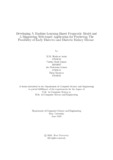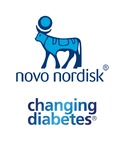Developing a machine learning based prognostic model and a supporting web-based application for predicting the possibility of early diabetes and diabetic kidney disease
Abstract
Machine Learning has gotten attention in the healthcare industry for the
competences to ameliorate disease prediction. Machine learning has already been
used in the health sector. Diabetes can also trigger the permanent loss of kidney
function. Diabetic kidney disease (DKD) is one of the most recurrent diabetic micro
vascular issues and has become the dominant cause of chronic kidney disease (CKD).
It causes steady and permanent loss of kidney function. Kidney damage has been
caused by poorly controlled diabetes that can damage the blood vessel clusters in
the kidneys. Diabetic kidney damage normally develops over a long period of time.
Therefore, there is a need for a machine learning model and application that can
effectively predict and track the level of diabetes along with Diabetic kidney disease.
In present studies, different classification algorithms such as Logistics Regression,
Random Forest, Decision Tree, XGBoost show a notable accuracy to predict the
early stage of diabetes. In this paper, our key motive is to find an efficient machine
learning model to predict diabetes and diabetic kidney disease (DKD). Since, Disease
Prognosis is a sensitive issue, it is not ethical to provide a result without extensive
testing. Therefore, we have assessed our model using Recall, F-1 Score, Precision,
AUC and also followed some robust evaluation metrics such as ROC, Sensitivity and
Specificity to appraise performance of the models from the medical perspective. We
are able to obtain an optimized prediction models using LightGBM with an accuracy
of 98.75 % on diabetic kidney disease prediction and CatBoost with accuracy of
96.15% on diabetes prediction. We have also proposed a web application using our
prognostic machine learning model to predict the result based on user input. This
application can be used to predict the initial stage of the diabetes mellitus and
diabetic kidney disease which may help to expedite the existing disease medication
process.
Keywords
Early Diabetes Prediction; Diabetes Kidney Disease Prediction; Machine Learning; Diabetes; GBDT; BioinformaticsDescription
This thesis is submitted in partial fulfillment of the requirements for the degree of Bachelor of Science in Computer Science and Engineering, 2021.Department
Department of Computer Science and Engineering, Brac UniversityType
ThesisCollections
Related items
Showing items related by title, author, creator and subject.
-
Ethnic predisposition of diabetes mellitus in the patients with previous history of gestational diabetes mellitus: A review
Gupta, Rajat Das; Gupta, Sabyasachi; Das, Anupom; Biswas, Tuhin; Haider, Mohammad Rifat; Sarker, Malabika (Tayor & Francis Online, 2018-05-08)Introduction: The worldwide prevalence of Gestational Diabetes Mellitus (GDM) is increasing day by day. However, there is a knowledge gap regarding the effect of ethnic and geographical distribution on the risk of developing ... -
Novo Nordisk Ltd. (pharmaceutical industry)
Matin, Md. Zubair (BRAC University, 2016-08-20)Bangladesh is a densely populated country situated at South- East Asia. Although the geographical area of the country is not that big, but the country is huge (8th in the world) in terms of the population (close to 160 ... -
A review on metformin for the treatment of type II Diabetes Mellitus
Yasin, Muhammad Tasnim (Brac University, 2024-03)Metformin, a well-known medication for type 2 diabetes, has demonstrated promise in postponing or averting the disease's beginning in high-risk patients. The first line of treatment for type 2 diabetic mellitus is biguanides ...



